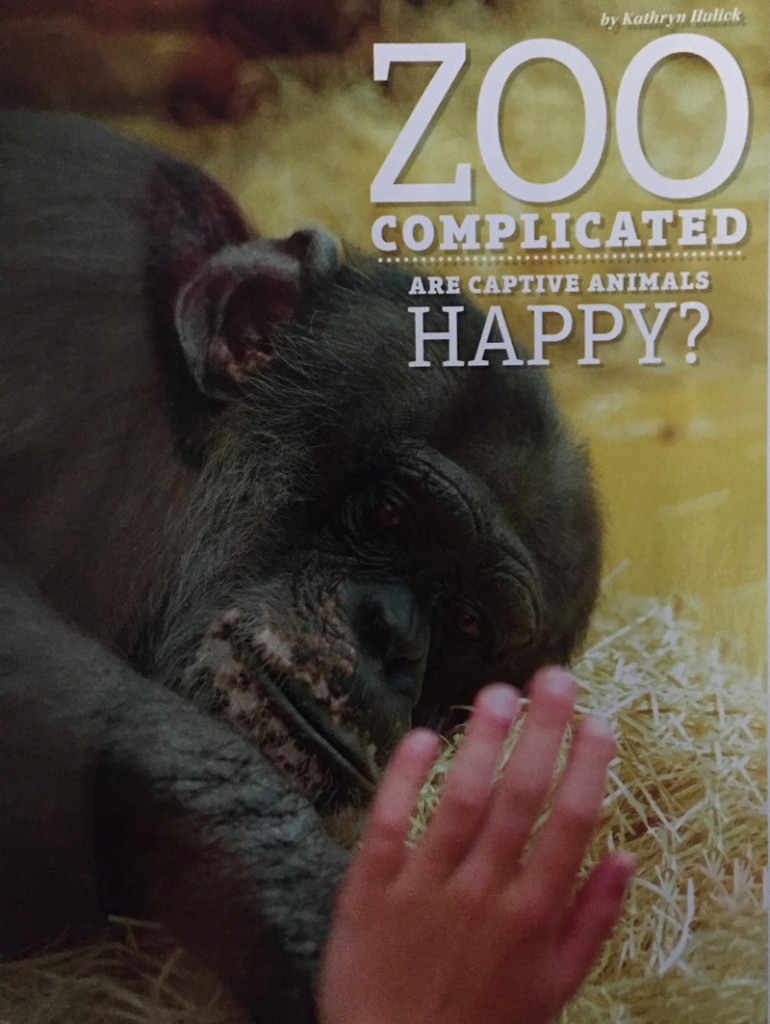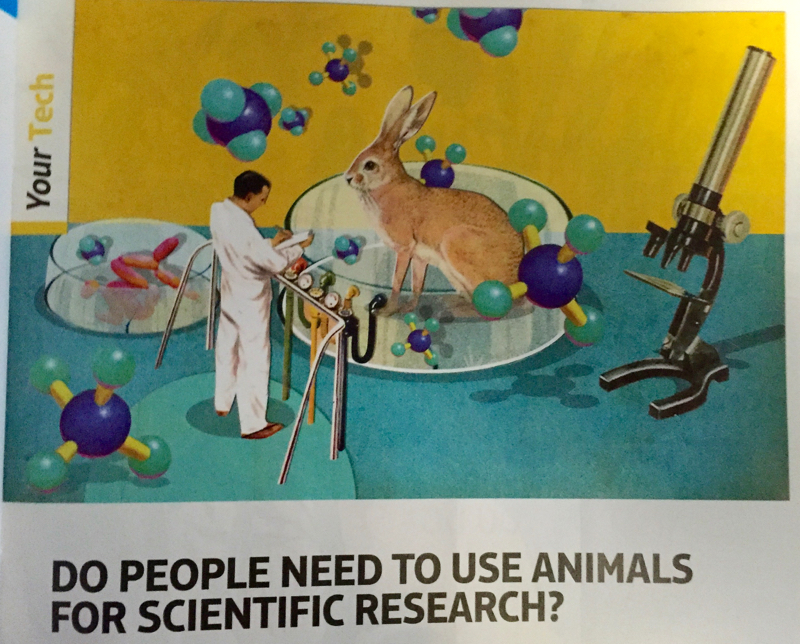Usually, as a science writer, I cover topics that are pretty non-controversial. (To the general public, anyway. You’d be surprised how riled up some researchers get about seemingly mundane topics such as acne). In this month’s issue of Muse, however, the theme was ethics. And the editor asked me to cover animals. I wrote a feature article on the ethics of keeping large, social animals in zoos and aquariums, and a short column on animal testing.
I had watched the documentary Blackfish, and knew I wanted to write about orcas. But as I began to research the issue, I ran into a problem. Every single website that has anything to do with keeping orcas in captivity seems to have an agenda: either to free the whales, or to justify keeping them and using them in shows. I felt like I couldn’t really trust anything I was reading or anyone I spoke to. I watched Blackfish again, then read SeaWorld’s refutations of many scenes and facts in the film. I spoke to a scientist at NOAA, but of course he wasn’t able to comment if I veered anywhere close to the real controversial issues.
In the article, I presented what I hope are facts about how a specific chimpanzee, giraffe, and killer whale experienced life (and death) in captivity. I left it up to the kids to decide whether the situation is/was right or wrong.
My own personal feelings are complicated. I do feel like it is possible to keep animals (even killer whales or elephants, which tend to be the most controversial) captive in a humane way. But I’m sure there are some parks out there that don’t meet the needs of their animals. It’s a sad situation, and one that I hope improves over time!


